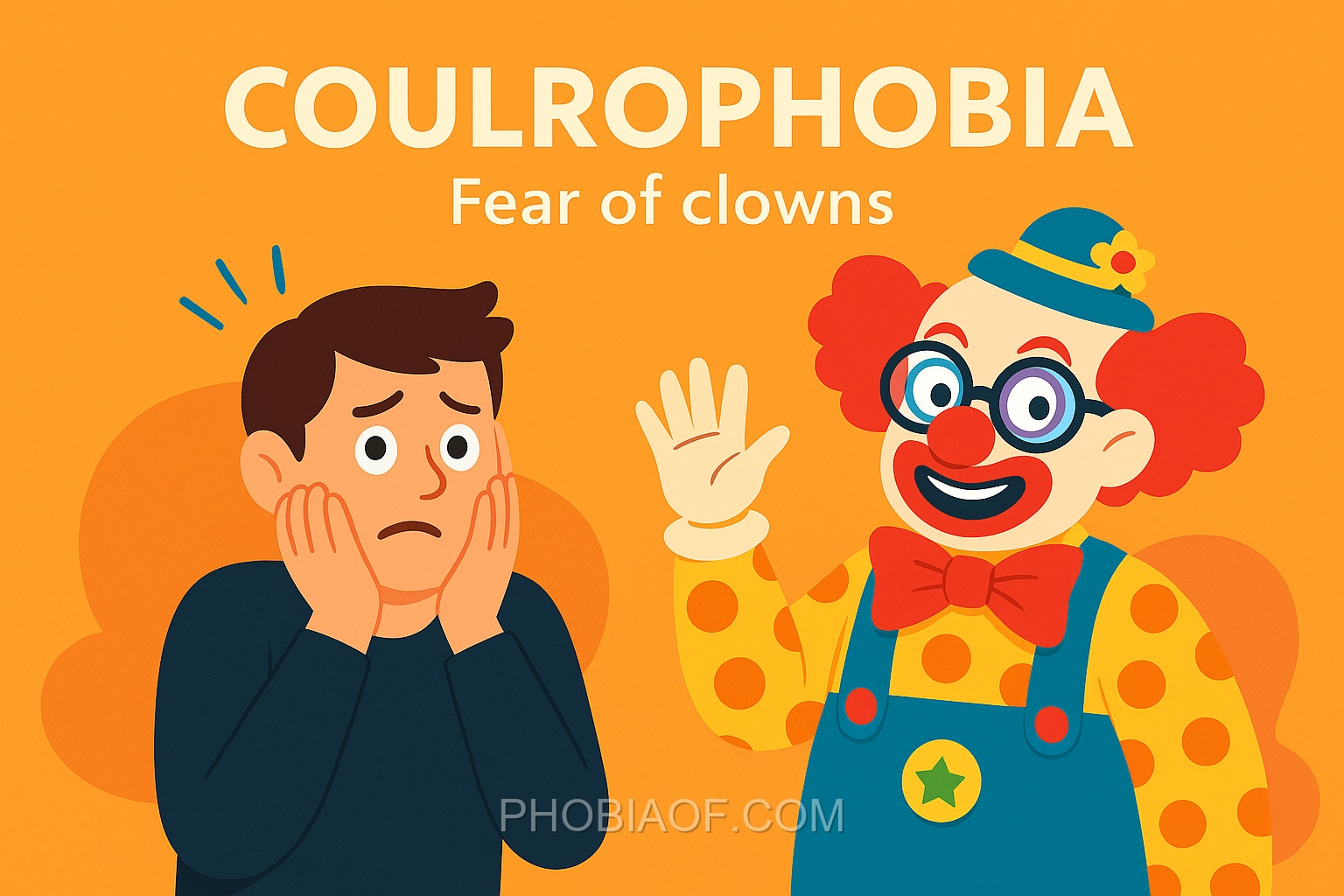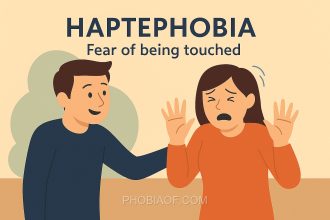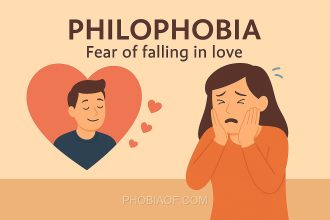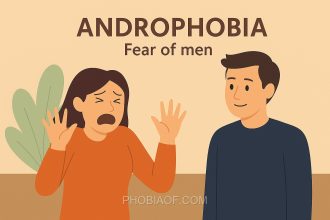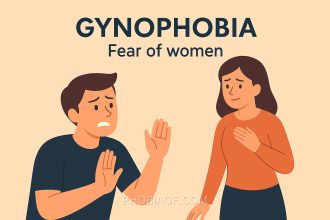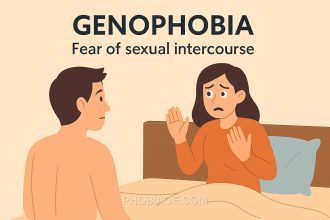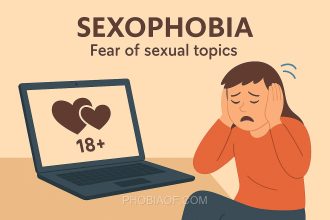Coulrophobia: The Fear of Clowns
Have you ever felt a chill run down your spine at the sight of a clown? If so, you’re not alone. Many people experience an intense and irrational fear of clowns, a condition known as Coulrophobia.
Coulrophobia is a term used to describe the fear of clowns. The word is derived from the Greek word “coulro,” meaning “stilt-walker,” and “phobia,” meaning “fear.” While clowns are often associated with laughter and fun, for those with coulrophobia, these colorful characters can evoke feelings of anxiety and dread.
This fear can manifest in various ways, affecting individuals differently:
- Some people might feel uneasy watching clowns in movies or at a circus.
- Others may experience physical symptoms like sweating, trembling, or even panic attacks when confronted with a clown.
- In severe cases, the fear can interfere with daily life, causing individuals to avoid places or events where clowns might be present.
Understanding that coulrophobia is a legitimate fear is the first step to addressing it. For those who experience this phobia, seeking support from mental health professionals can help in managing and overcoming the fear. Compassion and empathy can go a long way in supporting those affected by coulrophobia.
Causes of Coulrophobia
Coulrophobia, the fear of clowns, is a real and often intense fear experienced by many individuals. Understanding the potential causes of this phobia can help in addressing it effectively. Here are some common reasons why someone might develop this fear:
- Genetic Predisposition:
Some people may have a genetic tendency to develop phobias, including coulrophobia. If a family member has a specific phobia, it might increase the likelihood of another family member developing a similar fear.
- Traumatic Experiences:
A negative or frightening experience involving a clown can trigger this phobia. For example, a child who had a scary encounter with a clown at a birthday party might develop a lasting fear.
- Learned Behavior from Others:
Children often learn behaviors and fears from observing adults. If a parent or caregiver exhibits a fear of clowns, a child might adopt this fear as well.
- Psychological and Environmental Factors:
Various psychological factors, such as anxiety or general apprehension, can contribute to the development of phobias. Environmental influences, like media portrayals of clowns as evil or threatening, can also play a significant role.
Interestingly, some research suggests that clowns’ exaggerated features and makeup can make them appear less human and more uncanny, triggering discomfort or fear. This aligns with the “uncanny valley” theory, where human-like figures that are not quite human can cause eerie feelings.
Understanding these causes can be the first step toward managing and overcoming coulrophobia. Whether through therapy, gradual exposure, or support from loved ones, many people find ways to cope with and reduce their fear of clowns.
Symptoms of Coulrophobia
Coulrophobia, the fear of clowns, can evoke intense fear or anxiety in individuals who experience it. Understanding the symptoms can help recognize this phobia in oneself or others. Below is an empathetic overview of the common symptoms associated with coulrophobia:
Physical Symptoms:
- Panic attacks, which may include a sense of impending doom or loss of control.
- Sweating, often excessively, in the presence or anticipation of clowns.
- Increased heart rate or palpitations when encountering clowns or clown-related imagery.
- Shortness of breath or hyperventilation when exposed to triggers.
- Trembling or shaking when faced with the feared object or situation.
- Nausea or gastrointestinal distress when encountering clowns.
Emotional and Behavioral Symptoms:
- Overwhelming dread or intense fear when thinking about or seeing clowns.
- Avoidance of places or events where clowns might be present, such as circuses or parties.
- Difficulty concentrating or thinking about anything other than the fear of clowns.
- Feelings of helplessness or being trapped when encountering clowns.
- Persistent worry about clown-related events or media.
When severe, these symptoms can interfere significantly with daily life, affecting one’s ability to participate in social activities, work, or enjoy leisure time.
Treatment for Fear of Clowns (Coulrophobia)
It’s important to know that if you have a fear of clowns, known as coulrophobia, you are not alone, and this phobia can be treated and managed over time. With the right approach, you can overcome your fear and lead a life free from the anxiety it causes. Let’s explore the treatment options and coping strategies available to help you on this journey.
Proven Therapies
There are several effective therapies for addressing coulrophobia:
- Exposure Therapy: This involves gradually facing your fear in a controlled and safe environment. Starting with less intimidating images or representations of clowns, you’ll slowly work up to more direct exposure. This method helps desensitize your fear response over time.
- Cognitive-Behavioral Therapy (CBT): CBT focuses on identifying and changing the fearful thoughts associated with clowns. By restructuring these thoughts, you can alter your emotional response and reduce anxiety.
- Counseling: Talking with a mental health professional can provide support and guidance as you work through your fear. Counseling can help you understand the root of your phobia and develop healthy coping mechanisms.
Self-Help Coping Techniques
In addition to professional therapies, there are self-help strategies that can complement your treatment:
- Relaxation Exercises: Techniques such as deep breathing, progressive muscle relaxation, or visualization can help calm your mind and body when you encounter triggers.
- Meditation: Regular meditation practice can increase your overall sense of calm and reduce anxiety levels, making it easier to face your fears.
- Support Groups: Connecting with others who have similar fears can provide comfort and encouragement. Sharing experiences and coping strategies can be empowering.
Medication
For severe cases of coulrophobia, medication such as anti-anxiety medications might be prescribed. However, it’s important to focus on therapy and coping skills as the primary means of treatment.
Remember, overcoming a phobia takes time and effort, but with persistence and the right support, progress is possible. If your fear of clowns is interfering with your daily life, don’t hesitate to seek professional help. A mental health professional can guide you through the process and help you regain control.
You’re taking a positive step by exploring treatment options, and with dedication, you can overcome your fear and enjoy a more peaceful life.
Conclusion
Understanding coulrophobia, or the fear of clowns, can be the first step towards overcoming this often unsettling phobia. By recognizing the potential causes and identifying the symptoms, individuals are better equipped to confront their fears with clarity and knowledge. This empowerment can be a crucial catalyst in the journey towards managing or overcoming the phobia.
It is important to remember that many people successfully manage their phobias over time, especially with the right support and strategies. Whether through gradual exposure, cognitive-behavioral therapy, or other therapeutic methods, overcoming this fear is possible. If you or someone you know is struggling with coulrophobia, consider reaching out to a mental health professional or doctor for guidance and support.
Remember: You are not alone, and with time, patience, and the right help, a life less hindered by fear is within reach. Embrace the path to understanding and healing, and take the first step towards a more empowered and fearless future.
